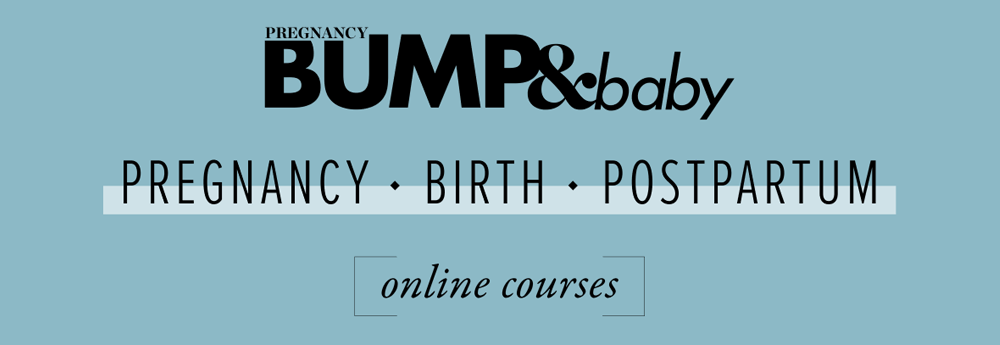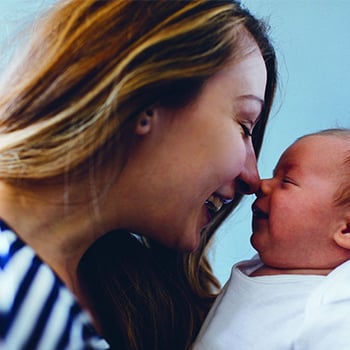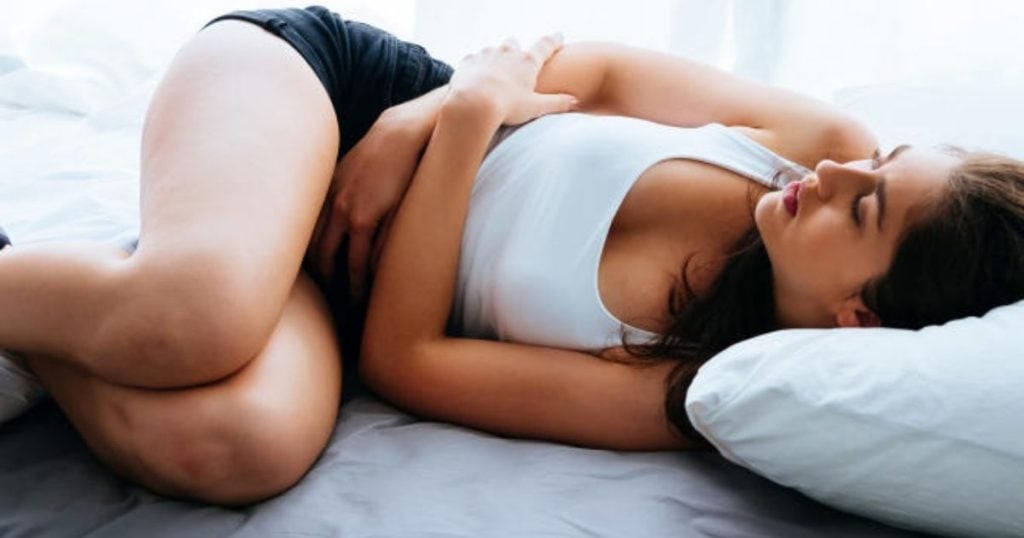
If you are pregnant or about to give birth during the lockdown due to COVID-19, here is all the information you need to know directly from the Ministry of Health.
Your care during pregnancy
If you are pregnant or caring for babies, it is understandable that you may be experiencing heightened levels of anxiety and distress while New Zealand is at COVID-19 Alert Level 4. This means your plans about where you would give birth and who would support you may need to change.
Your maternity care during your pregnancy will also be affected. Your midwife (or Lead Maternity Carer doctor) will do as much as possible over the phone or via video calling. Your midwife may decrease the amount of face-to-face visits and will discuss with you the best place to have these. This is to protect you and your midwife from COVID-19 infection. Pregnant women do not appear any more susceptible to the consequences of COVID-19 infection than the general population.
Your midwife, or midwifery practice, will adjust the way they work to reduce the spread of COVID-19. Before any visit with your midwife, you will be expected to confirm that you are well. If you are not well, the visit may be postponed or take place via a phone or video call.
It is important to seek support where you can. This is usually possible through normal support structures like your antenatal classes, parenting education, or parenting support groups. As these are now postponed, try to keep in touch with your whānau and friends regularly by phone or online. It is important to take care of yourself and that means taking care of your mental health as well.
Face-to-face check-ups
For most women your face-to face-check-ups may be reduced. Your midwife will still contact you by phone or by video call. You will be asked to attend check-ups alone (no partners, family members or children) and you will be required to observe strict hygiene measures, including physical distancing. The physical assessments (blood pressure and checking your baby’s growth and heart rate) will still occur but will be done as quickly as possible. It’s important you tell your midwife if you are unwell before any face-to-face visit.
Self-isolation in pregnancy
If you are self-isolating due to potential exposure to COVID-19 you must tell your midwife or midwifery practice. It could be because of a close contact or you meet the updated case definition for testing.
If you are less than 37 weeks pregnant, your midwife (or GP/obstetrician LMC) may reschedule routine antenatal visits once your 14-day self-isolation period ends. This will only happen if your midwife assesses that your maternity care can safely be deferred. If you do need a visit from your midwife, you will need to wear a surgical face mask. Your midwife will provide you with this. Your midwife may also wear some personal protective equipment (like a mask).
If you are more than 37 weeks pregnant your midwife will continue antenatal visits according to the usual schedule. You will need to wear a surgical face mask during the visit. Your midwife will provide you with this. Your midwife may also wear some personal protective equipment (like a mask).
Your midwife will talk with you about options in case you give birth during your 14-day self-isolation period. This will include local options for labour and birth, and your immediate postnatal care.
If you develop symptoms of COVID-19 during your self-isolation period, call Healthline on 0800 358 5453 and follow their advice. You will be treated as positive for COVID-19 until you receive a negative test result. Healthline should be your first line of contact, then also let your midwife know if you become unwell.
Diagnosed with COVID-19 during pregnancy
If you have been diagnosed with COVID-19 (a confirmed or probable case), inform your midwife or midwifery practice.
If you are less than 37 weeks pregnant your midwife may reschedule routine antenatal visits until you have been cleared. This will only occur if your midwife assesses that your maternity care can safely be deferred. If you do need a visit from your midwife, you will need to wear a surgical face mask. Your midwife will provide you with this. Your midwife will wear full personal protection equipment (gloves, surgical mask, disposable apron and eye protection).
If you are more than 37 weeks pregnant your midwife will continue to antenatal visits according to the usual schedule. You will need to wear a surgical face mask during the visit. Your midwife will provide you with this. Your midwife will wear full personal protection equipment (gloves, surgical mask, disposable apron and eye protection).
Your midwife will talk with you about options in case you give birth before being cleared of COVID-19. This will include local options for labour and birth, and your immediate postnatal care.
Care of older children during labour and birth
If you have older children, you will need to organise care for them when you go into labour. They must continue to follow the rules under Alert Level 4 to stay home. It is recommended you identify a trusted person who is part of your self-isolation group. It is vital that person is not elderly or vulnerable, and that they, and the people in their household, do not have other contacts other than with your household.
Maternity facilities (birthing or delivery suites in hospitals and birthing units in the community)
Primary, secondary and tertiary maternity facilities will remain open to provide essential services during COVID-19 Alert Level 4.
If you are due to give birth over the next few weeks, check with your midwife about the service level available at your local maternity facility.
Maternity facilities will have restrictions on the number of visitors and support people you can have with you at the facility. This includes while you are in labour, and if you need to stay as an in-patient before the birth of your baby, or afterwards. This is important to help stop the spread of COVID-19. Reducing the number of people in the facility will help protect you, your whānau, your newborn baby, other patients in the hospital, and the women’s health staff looking after you.
Some maternity facilities may need to limit the amount of time you can stay after your baby is born. Your midwife (or DHB community midwife) will visit you at home as required and keep in touch with you by phone or video call to ensure you and your baby are well.
Your postnatal care during the COVID-19 pandemic
For most women your visits will be affected. Your midwife will do as much as possible over the phone or via video calling. Your midwife may decrease the amount of face-to-face visits and will discuss with you the best place to have these. Your midwife will ask that no-one else is present during check-ups (no partners, family members or children) and you will be required to observe strict hygiene measures, including physical distancing. The physical assessments of you and your baby will still occur but will be done as quickly as possible.
If you are self-isolating
If you are self-isolating due to potential exposure to COVID-19 (close contact or you meet the updated case definition for testing) your midwife may reschedule routine postnatal visits. These will occur once your 14-day self-isolation period ends, but only if your midwife assesses that postnatal care can safely be deferred. If you do need a visit from your midwife, you will need to wear a surgical face mask. Your midwife will provide you with this. Your midwife may also wear some personal protective equipment (like a mask).
If you develop symptoms of COVID-19 during your self-isolation period, you will be treated as positive for COVID-19 until you receive a negative test result. If you develop symptoms, call Healthline on 0800 358 5453 and follow their advice. Healthline is your first point of contact, but you should also let your midwife know if you become unwell.
If you are diagnosed with COVID-19
If you have been diagnosed with COVID-19 (confirmed or probable case), inform your midwife or midwifery practice. Your midwife may reschedule routine postnatal visits until you have been cleared. This will only occur if your midwife assesses that postnatal care can safely be deferred. If you do need a visit from your midwife, you will need to wear a surgical face mask. Your midwife will provide you with this. Your midwife will wear full personal protection equipment (gloves, surgical mask, disposable apron and eye protection) during the visit.
This information was taken from the Ministry of Health website, please keep checking the Ministry of Health for more updated information.
BUMP&baby
BUMP & baby is New Zealand’s only magazine for pregnancy and early babyhood. Our team of mums and mums-to-be understand what it’s like to be pregnant in this connected age, and that’s why BUMP & Baby online is geared toward what pregnant women and new mums really want to know.
Other articles of interest
How babies learn language
Learning a language involves listening, understanding, and speaking. Primary caregivers play a pivotal role in guiding the way a baby learns these processes.
Expert morning sickness tips that really work!
You’re pregnant, yay! Congratulations! Unfortunately, around week 6 of pregnancy, the symptoms of morning sickness can start. It usually subsides around week 14-16 of pregnancy.







